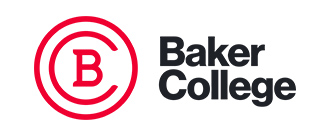About
About Baker College
Proudly proclaimed as a top private university in the state of Michigan for transfers, Baker College offers more than 100 career-oriented programs that are designed by leaders in their respective industries. The college is the largest private, not-for-profit college in Michigan. When you become a student of this long-standing institution, you will have the opportunity to change your life and be proud, or, as the school states, BakerProud!
Baker College confers associate, bachelor's, and master's degrees. Looking for a business-related career in management, accounting, marketing, or finance? Or a career in the health field, such as nurse, occupational therapist, radiologic technician, medical assistant, or dental hygienist? Or maybe you're more of a technical career individual and wish to pursue work as a civil engineer, diesel technician, or welder. Whatever the case, you can take the first step toward entering one of these or other in-demand fields at Baker College. Want to study online? More than 50 programs are available in this format, and each one has the same fully-accredited core curriculum as its on-campus counterpart. Online studies include those in business administration, criminal justice, finance, game software development, information systems, and nursing administration. The college also offers an online MBA program.
The college is accredited by The Higher Learning Commission. Its Schools of Nursing, Education, and Occupational Therapy as well as programs in business administration, engineering, health sciences, and human services possess specialized accreditations. These include those by the ASE Education Foundation, International Accreditation Council for Business Education (IACBE), American Bar Association, Engineering Accreditation Commission of ABET, and Commission on Collegiate Nursing Education (CCNE).
Student Testimonials
''My favorite thing about the business program would have to be the resources. Failure is not an option in the business program, so long as you are utilizing the many resources to their fullest potential.''
- Tess Lewis, Current Student
'Baker's nursing faculty has helped me tremendously through my journey in the nursing program. They are not only incredible professors but incredible leaders, that I look up to, and hope to emulate.''
- Eric Lopez, Current Student
Why Baker College?
- Transfer Credit Options: Baker College prides itself on making it easy for students to transfer general education credits, single-course credits, or even an entire degree.
- Quality Programs: Baker College offers expert faculty, programs driven by student outcomes, research-based teaching methods, and ongoing program assessments.
- Student Services: Articles, videos, books, and more can be accessed at the college's Academic Resource Center; these resources are also accessible 24/7 online. Tutoring services, on-campus writing centers, and one-on-one sessions with writing experts to improve skills are available free of charge for all students.
- Financial assistance: From grants and scholarships to federal loans, you have several options when it comes to getting help to pay for your college education as a student of Baker College.
Minimum Eligibility Requirements
As an applicant to Baker College's programs, you must possess a high school diploma or equivalent; some programs may have additional requirements.


.svg)

